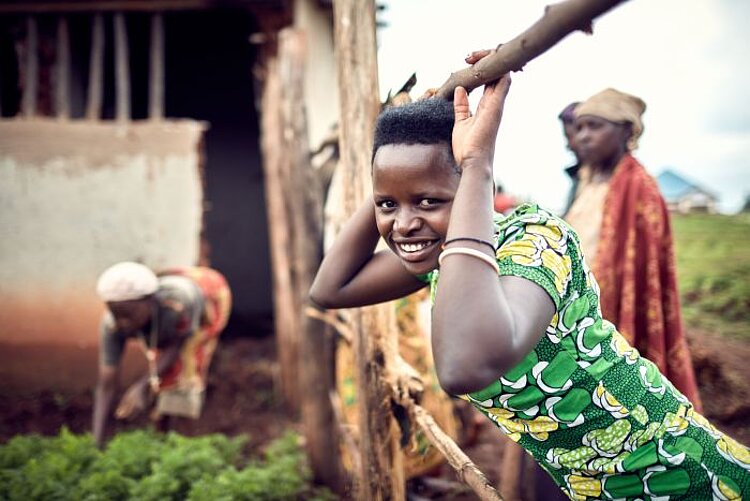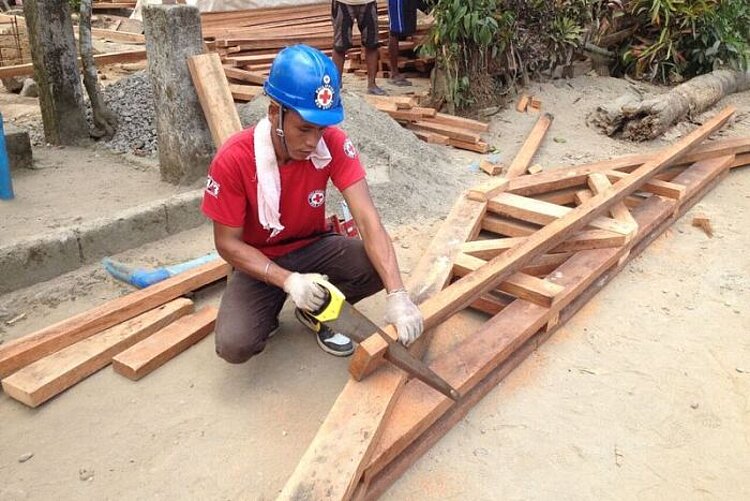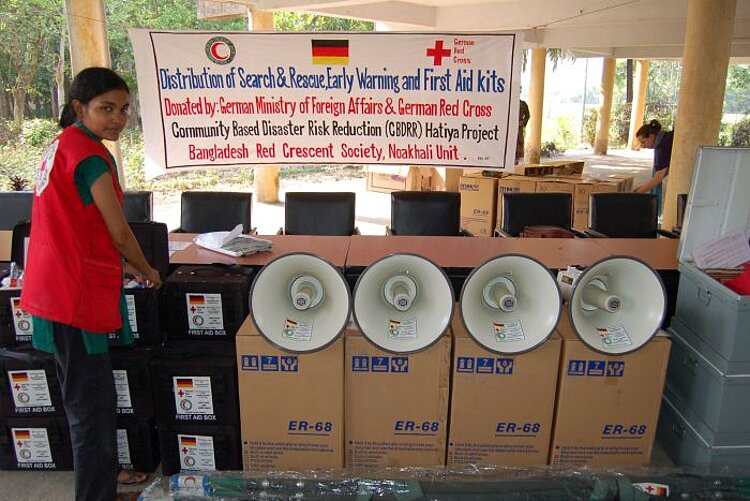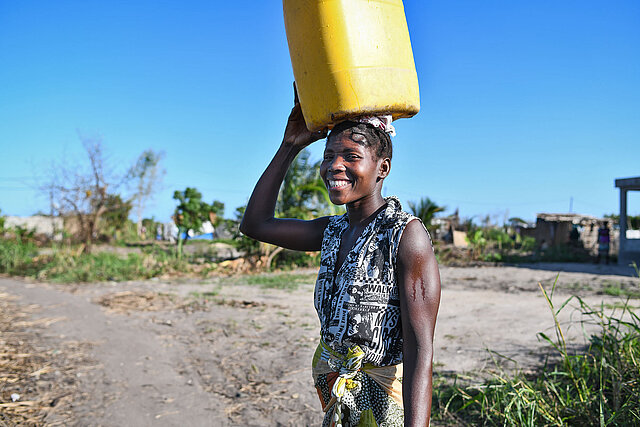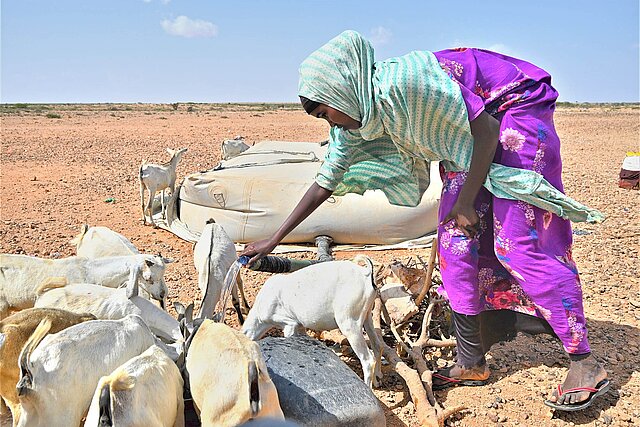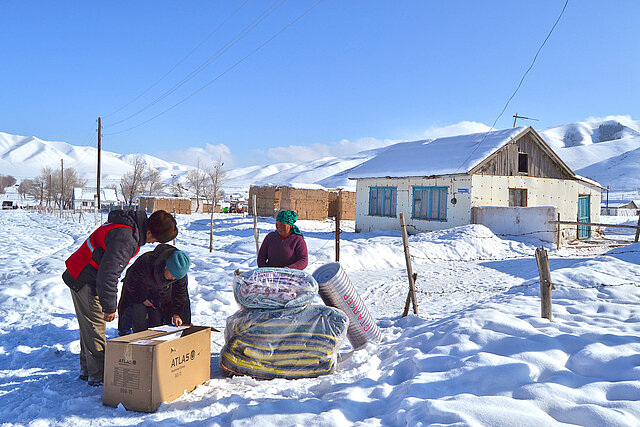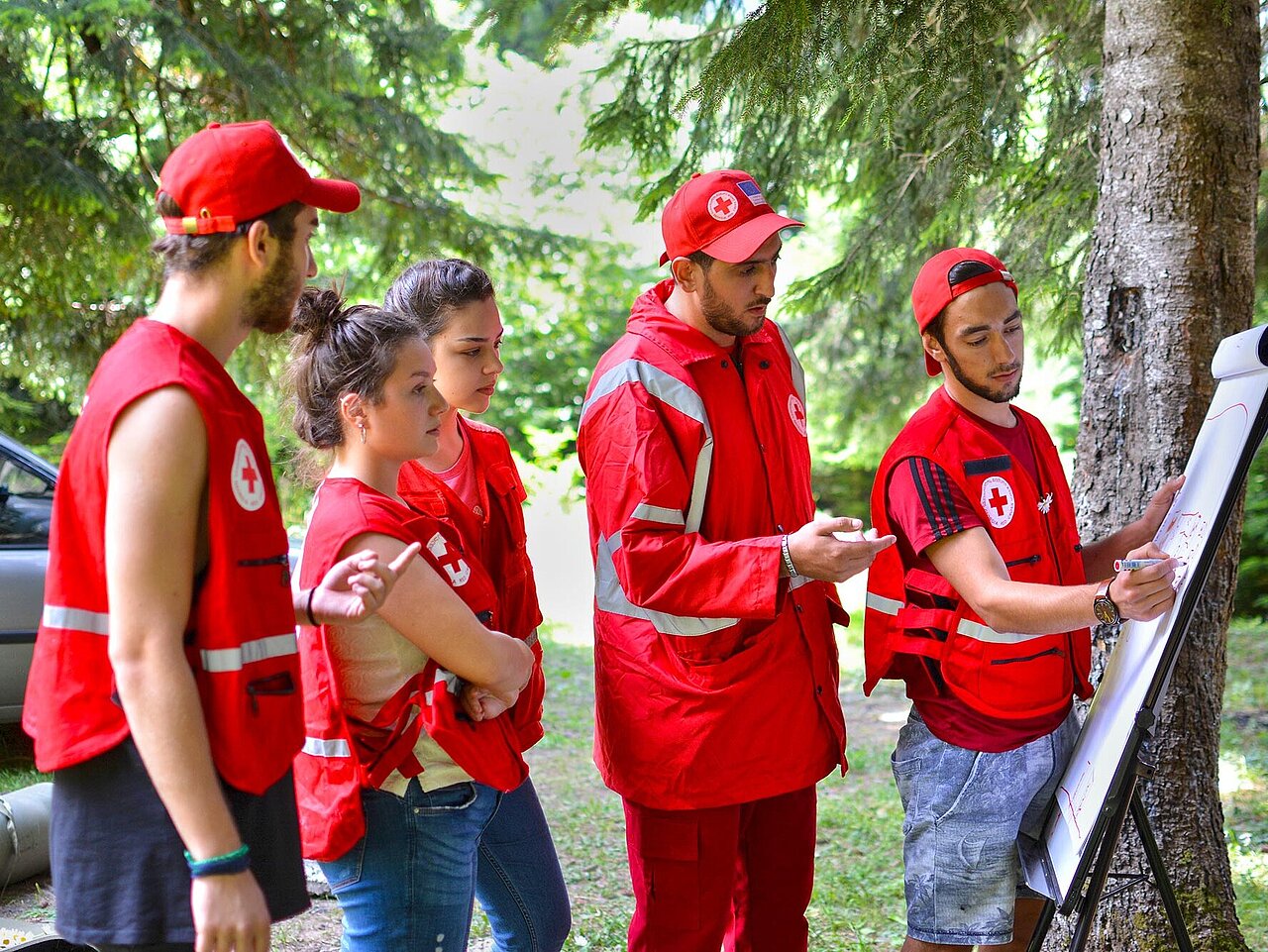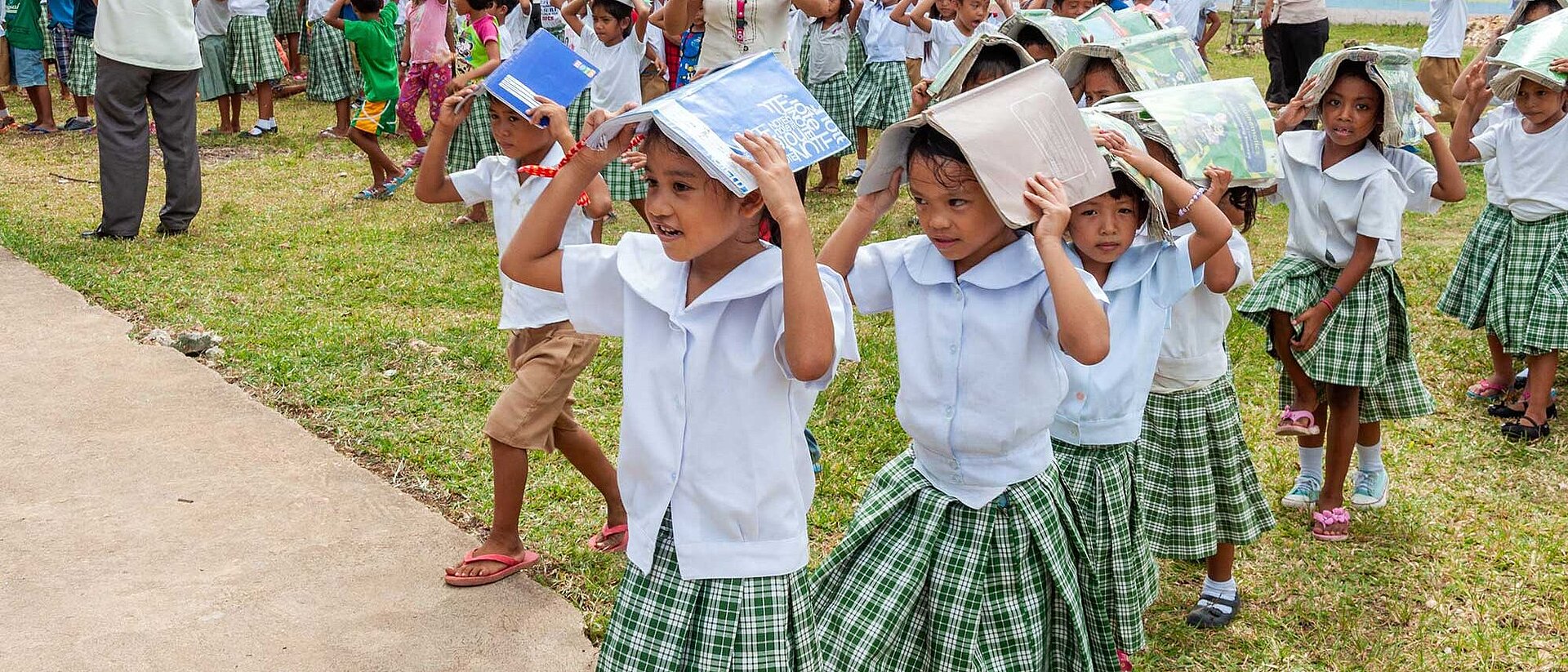
Disaster risk reduction
Prepared for emergenciesNatural disasters repeatedly confront people with immeasurable suffering and enormous challenges. The German Red Cross is committed to improving the resilience of affected population groups in disaster areas.
Disasters and their severe consequences
Within a few hours, sometimes a few minutes, tens of thousands of people are killed, injured or left homeless as a result of hurricanes, floods, volcanic eruptions, earthquakes or tsunamis. The economic development of a region or an entire country is set back decades in one fell swoop.
Not only major disasters, but also a large number of small-scale natural hazards, such as landslides, are capable of causing considerable damage if people are not aware of them and not adequately prepared for these events. Climate change is exacerbating the dangers for the affected population.
Disaster risk reduction in three steps
With its projects for disaster preparedness, the German Red Cross strengthens the resilience of the population to the consequences of natural disasters in particularly threatened areas. Disaster risk reduction basically consists of three key steps:
- Risk Analysis: identification of natural hazards and disaster risks, but also of existing self-help capacities with the local population, development of risk maps
- Disaster Prevention and Mitigation: activities that help to prevent or mitigate the consequences of future disasters, such as building storm-proof community centres or securing landslide-prone slopes; imparting specialist knowledge about disaster prevention to teachers, health and hygiene education
- Preparing for Disasters: activities like setting up local first aid teams, developing emergency and evacuation plans, simulation exercises; setting up local early warning systems
